Picture this – a European villa in a warm seaside town, surrounded by ocean views, a patio, and large windows that seemingly pulls in the landscape around you into your home. With arched windows, wrought-iron details, and a blend of warm-toned, tiled roofs, the Mediterranean style house stands out amongst the many popular home styles across the US. To make your European villa dream come true, find out what makes Mediterranean style homes stand the test of time and how you can find one for sale near you.
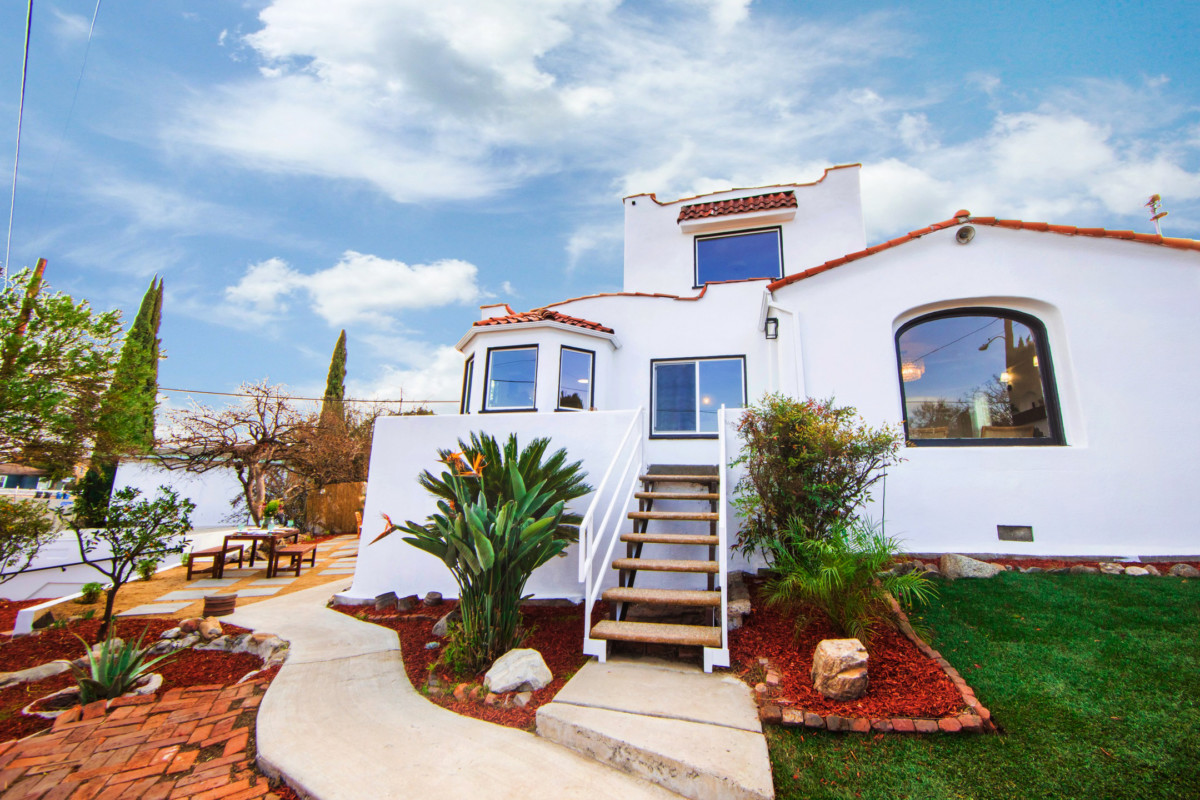 What is a Mediterranean house?
What is a Mediterranean house?
Mediterranean houses are a home style that takes inspiration from historic European architecture, often from Spanish and Italian influence. These homes are reminiscent of villas found in seaside Mediterranean towns, with their red roof tiles, stucco exteriors, and blend of indoor-outdoor living.
History of the Mediterranean style house
Mediterranean style homes originated in the 1920s as part of the Roaring Twenties obsession with luxury, wealth, and leisurely lifestyles. This gave rise to many seaside resorts, which took inspiration from Mediterranean architecture. While resorts and hotels in the US popularized this architectural style, architects in California and Florida, such as Addison Mizner, Bertram Goodhue, and Paul Williams saw the appeal of this house style and began to design Mediterranean inspired homes.
Where are Mediterranean style homes located?
Mediterranean homes are most popular in warmer locations with long histories of Spanish influence, such as Santa Barbara, CA, Pasadena, CA, Austin, TX, and Miami, FL. One of the most recognizable examples of a Mediterranean mansion is the iconic Hearst Castle in San Simeon, CA. Unlike widely popular home styles like the ranch home, which can be found across the country, Mediterranean homes are more concentrated in states like California, Florida, and Texas.
Mediterranean house plans
Mediterranean homes have many overarching themes that are still prominent today, regardless of the architectural movement they were built in. Here are some of the common indoor and outdoor features you can find in most Mediterranean style homes.
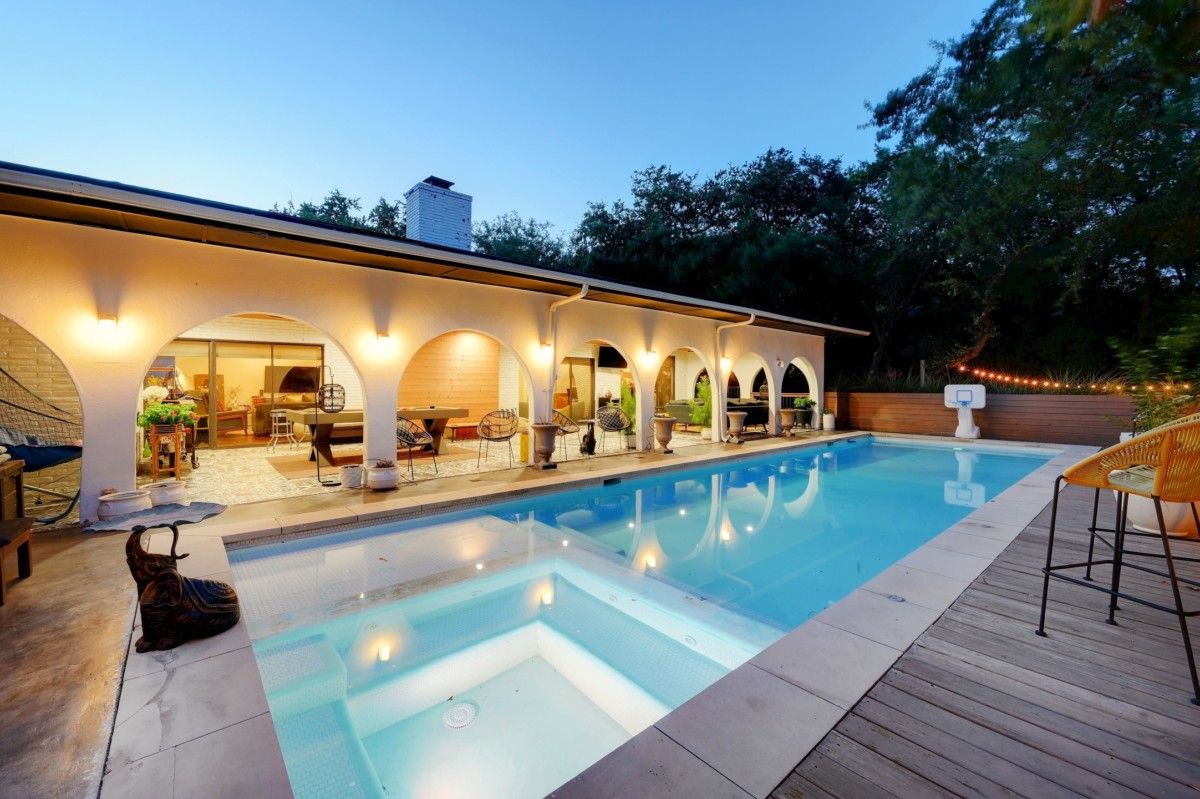
Mediterranean house exterior characteristics
The key element to a Mediterranean style exterior is the red-tiled, terra cotta roof. With painted white stucco or brick siding, these characteristics are designed to keep this home style cool in their warmer climates. Iron or metal work was a popular architectural detail around the windows, balconies, and the front door. Doors may also have carvings, stone details, or grand arches. These features also extend into indoor-outdoor living spaces, like patios or verandas, with stone floors and archways. Landscaping often includes palm trees, herb gardens, water fountains, and terra cotta potted plants.
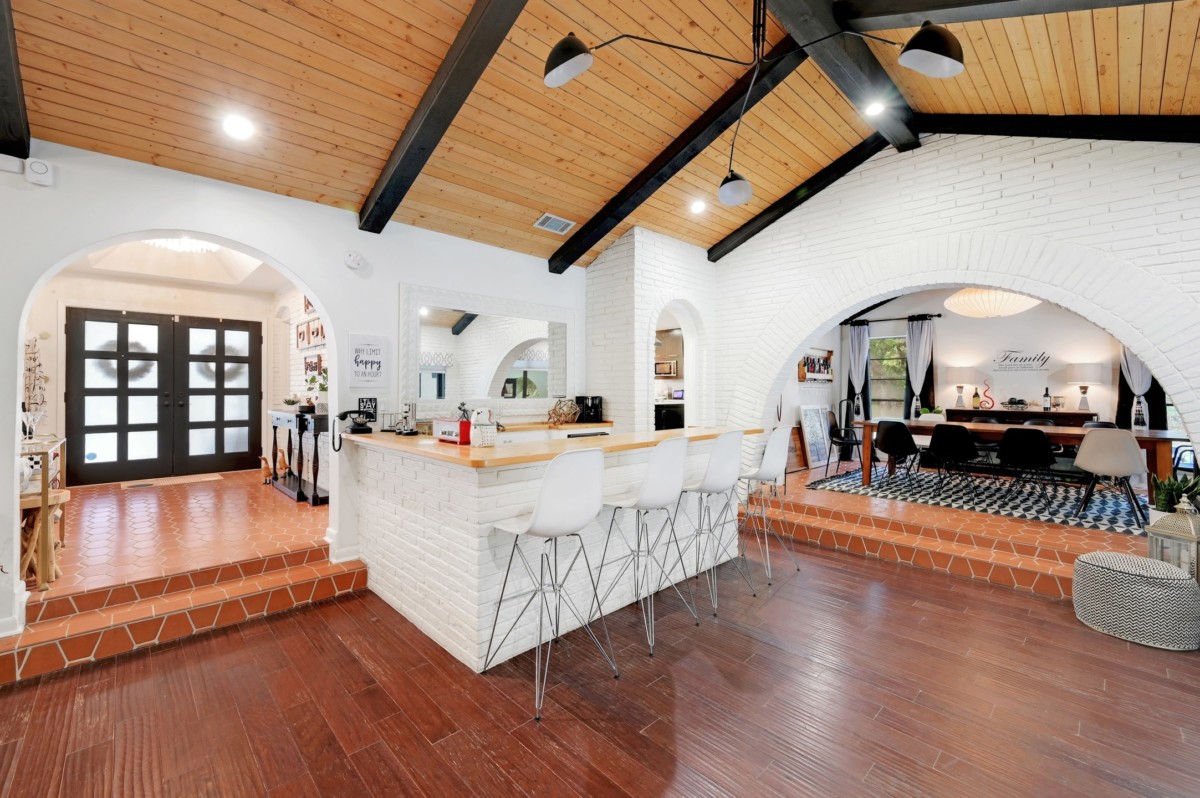
Mediterranean house interior characteristics
When it comes to a Mediterranean home’s interior characteristics, expect to see lots of warm tones mixed with white walls and exposed wood beams. Floors tend to be terra cotta, stone, or natural wood. Earthy and warm colors fill the interiors so you’ll likely see shades of ochre, chestnut, and clay. However, beachy tones of turquoise, seafoam green, and cerulean are often used as accent colors throughout the home. Lastly, Mediterranean style interiors feature patterned tiles, whether in the kitchen, bathroom, or as an accent wall.
Types of Mediterranean house styles
While Mediterranean homes often have similar characteristics that make them easily identifiable, four main architectural movements heavily influenced these homes. Let’s take a look at these four specific types of Mediterranean house styles.
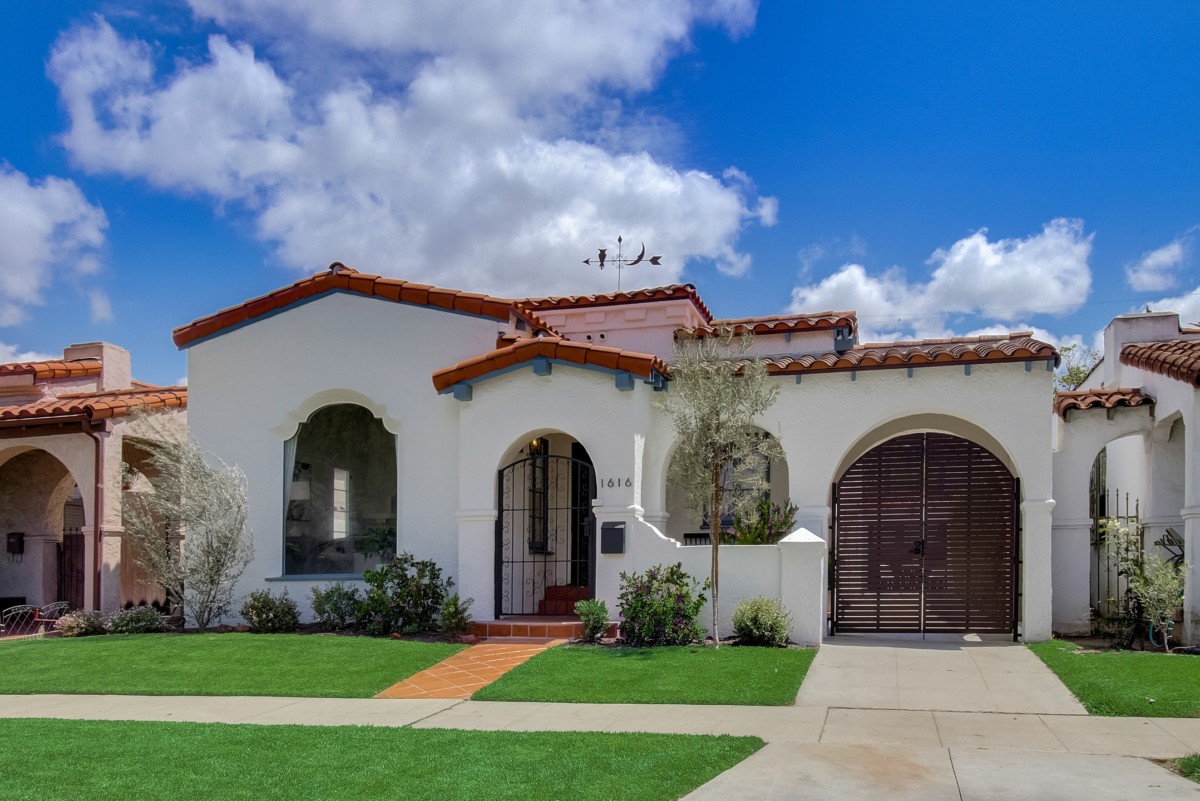
Mission Revival (1890 – 1915)
The Mission Revival style gained popularity during the Arts and Crafts movement, taking heavy inspiration from the Spanish missions throughout California. As the first popular style of Mediterranean style homes, its influence can be seen in newly constructed Mediterranean homes.
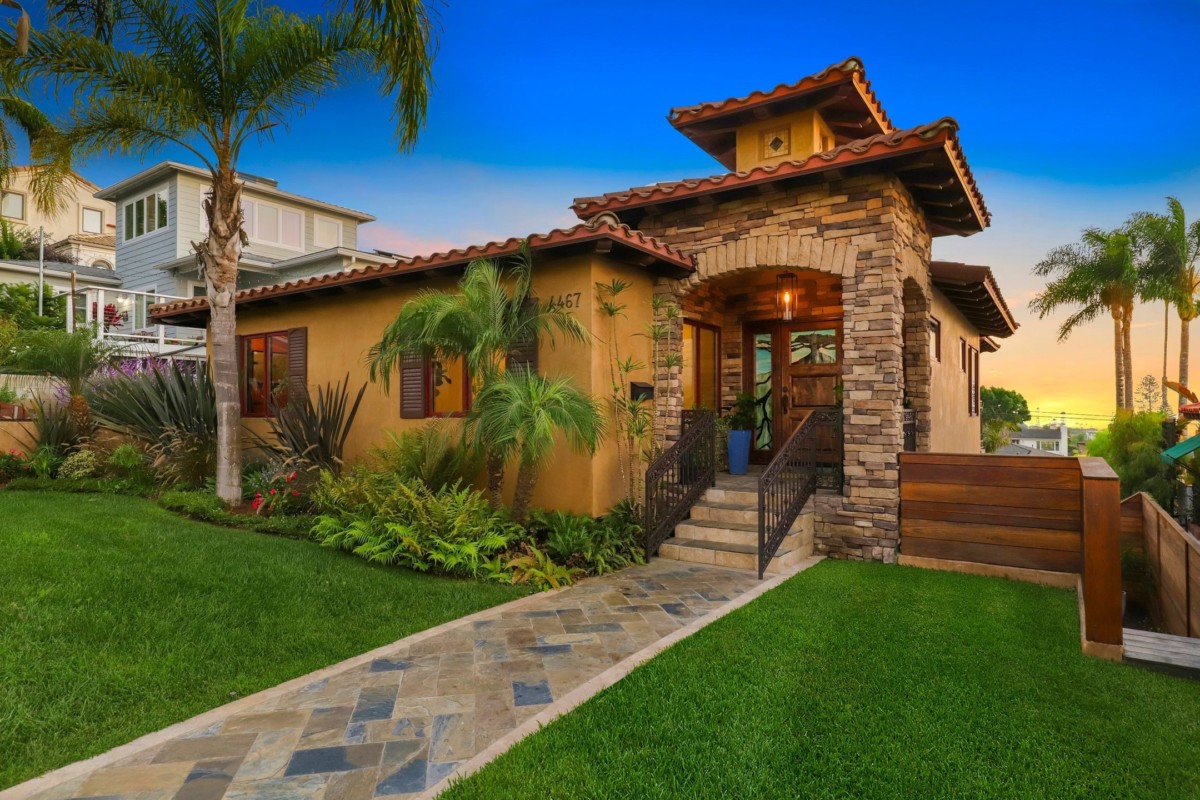
Italian Renaissance (1890 -1930)
Italian Renaissance style Mediterranean homes take inspiration from none other than the architecture popular during the Italian Renaissance. Homes often have clay roofs, grand and rounded arches, columns, a two-story exterior, and are more formal than other types of Mediterranean styles.
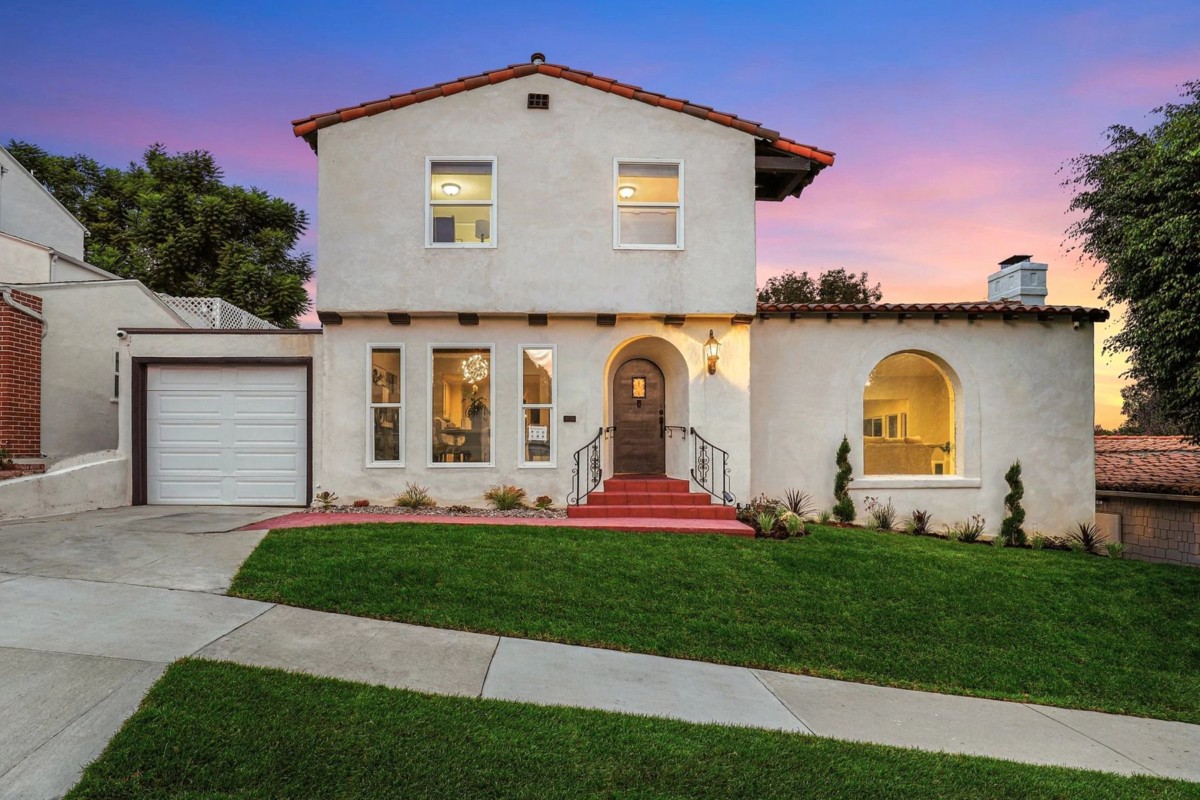
Spanish Colonial Revival (1915 -1930)
Typically characterized by their low-pitched roofs, clean lines, and symmetrical exterior, Spanish Revival homes reached the height of their popularity in the 1920s and 1930s. Also referred to as simply Spanish Revival, Spanish Colonial Revival style homes are often more simplistic than their Italian Renaissance counterparts. More intricate versions of the Spanish Colonial Revival style feature complex details seen through the ironwork and tilework.
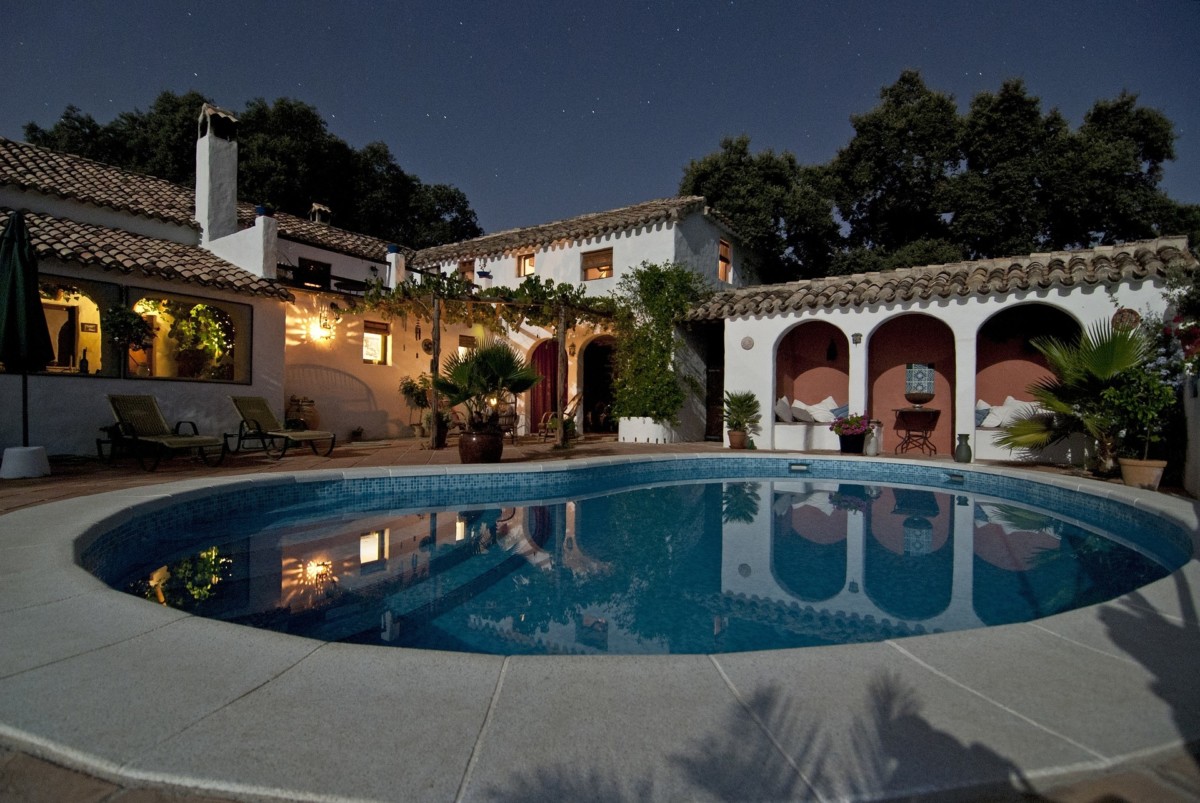
Modern Mediterranean house
When you think of most newer construction Mediterranean homes, you’re likely imagining the Modern Mediterranean style house. With a mix of both Italian and Spanish styles with clean and modern lines, Modern Mediterranean houses may lack the charm of a historic home. However, if you’re looking for the right blend of a modern floor plan, with terra-cotta or Mediterranean tiled roofs and indoor-outdoor living, the modern Mediterranean style may be the right choice for you.
Design tips for a Mediterranean home
Choosing the right design elements for a Mediterranean home may feel intimidating. Do you stick with the Mediterranean style? Do you opt for a simple and minimalist interior? Or do you embrace maximalism? Here are a few tips to consider when designing your home.
With warm-toned wood floors and beams, consider incorporating darker toned wood furniture contrasted with freshly painted white walls. Sticking with neutral colors is key, but don’t forget to bring in complementary colors with decorative tiles and accent pieces. When it comes to fabric choices, choose light and airy fabrics like linen. Consider embracing the warmth that comes with a Mediterranean home with a fireplace or outdoor fire pit to elevate your indoor-outdoor living space.
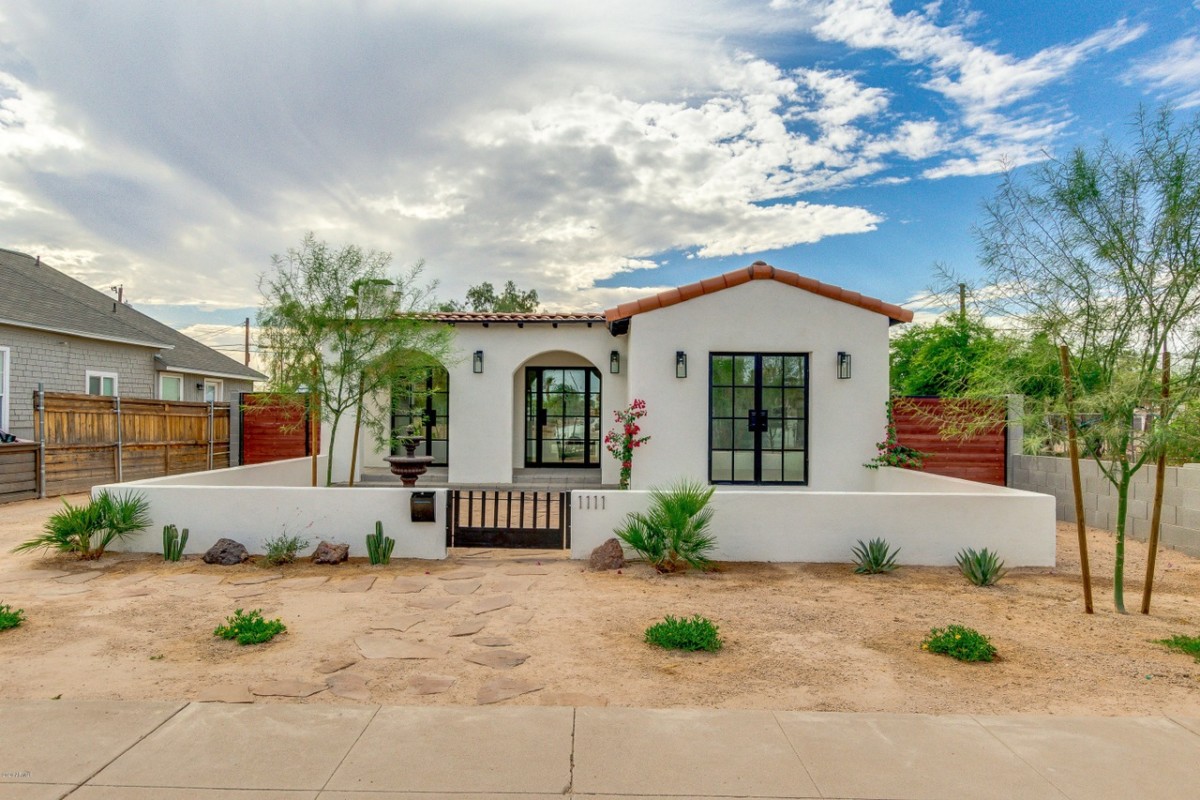
Pros and cons of the Mediterranean house style
All homes will have pros and cons no matter what home style you pick or where you live. So before you take the plunge and buy a Mediterranean style house, let’s take a look at the advantages and disadvantages.
Pros of the Mediterranean style house
The pros of a Mediterranean home lie in its unique qualities and building materials. With architectural details like exposed beams, tiles, and ironwork, you can design your home to draw attention to these features. If you’re living in California, these homes are suited for the warm weather with their stucco walls, leading to cooler inside temperatures. This may even be a sustainable option for those looking to purchase a more eco-friendly home.
Cons of the Mediterranean style house
Mediterranean style homes often bear shorter ceilings, less storage space, and smaller windows, making individual rooms feel cramped. Additionally, styling these homes may seem limited, as you want to ensure you highlight the charm of a Mediterranean home rather than hide its details.
Finally, as unique as Mediterranean homes are, it may simply not be your taste. For example, say you’re house hunting in Boston, MA, where the winters are cold and snowy. In that case, a Cape Cod-style house may be best suited to your needs since the traditional building materials used for Mediterranean homes makes them more suitable for warmer climates.
How to find Mediterranean homes for sale in your area
If your heart is set on buying a Mediterranean house, Redfin can help you find one in your town.
1. Go to Redfin.com and type into the Search Bar either the city’s name or the zip code, for example, Santa Barbara, CA, where you’d like to begin looking for a house. Press enter.

2. Near the top of the next page, on the right side, you will see “All filters.” Click on that and scroll to the “Keywords” box near the bottom of the page.

3. Type the word “Mediterranean,” “Spanish,” “Italian,” (etc.) into the Keywords box and press Apply Filters. It’s that simple! All Mediterranean style homes within the city name or zip code you entered will populate the page, and you’ll be able to begin your search.
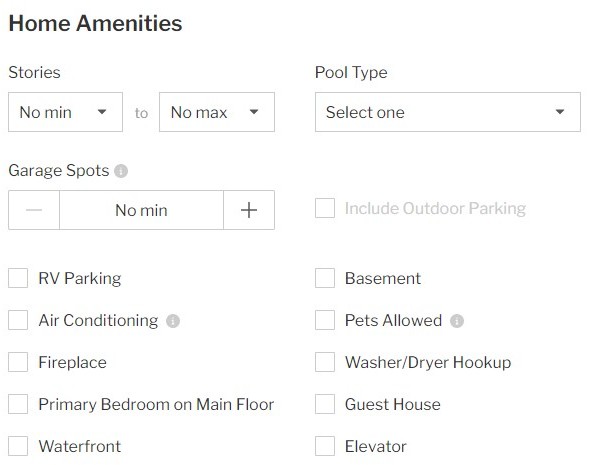

The post The Mediterranean Style House: Blending Italian and Spanish Architecture appeared first on Redfin | Real Estate Tips for Home Buying, Selling & More.
